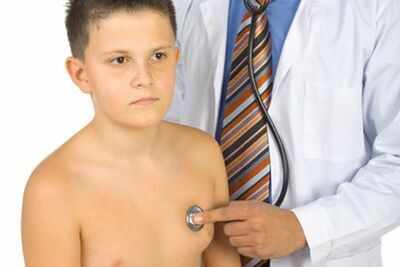- News
- lifestyle
- health-fitness
- health-news
- Acidity on the rise among children
Trending
This story is from September 26, 2013
Acidity on the rise among children
Unhealthy lifestyle and stress are causing acidity in children too, warn health experts

Acidity has always been an ‘adult complaint’. However, recent years have seen a rise in the number of children suffering from it. Not surprisingly, stress and bad lifestyle habits are the villains here as well. Read on to know more...
Case study 1:
Namit Rana (name changed), 14, often had bouts of severe nausea and vomiting.

Case study 2:
Shubhamitra Das (name changed), 16, was addicted to junk food and fizzy drinks. She often complained of indigestion and heartburn. Despite treatment, her diet habits did not improve. Finally, due to constant retching, the lower end of the food pipe (oesophagus) developed a tear and Shubhamitra had to undergo prolonged medical treatment.
The reasons
Consultant physician (Internal Medicine) Dr Amit A Saraf says, “Children in the age group of 10 to 16 years are routinely seen presenting themselves with symptoms of hyperacidity. This trend has been steadily increasing over the past few years.” The main reasons include a high-calorie low-fibre diet, long intervals between meals, gulping down food rather than slowly chewing it thoroughly, academic stress, increased consumption of cold drinks and less consumption of water, he explains.
The role of stress
Says metabolic physician and endocrinologist Dr Deepak Chaturvedi, “Stress is one of the most important factors behind hyperacidity. Acid secretion happens under autonomic control. Any alteration in this autonomic system, due to stress, causes an imbalance in acid secretion and inhibition. It leads to hypersecretion.”
Dr Chaturvedi explains how acidity develops:
Condition:
Our body has some natural defence mechanisms. For example, the mucus lining in the stomach and chemicals (prostaglandins) protect our stomach and food pipe from acid (digestive juices) injuries. At the same time, these acids are required for digestion (especially proteins). Anything disrupting this barrier causes relative hyperacidity even in the absence of true acid hypersecretion.
Cause:
The factors that increase acid secretion and/or disrupt the barrier are: Stress, inadequate sleep, inappropriate diet, long fasts, binge eating, exclusive high-protein diet and excessive use of caffeine, colas, cigarettes, fried foods and painkillers. Another common cause of acid hypersecretion and defence-barrier disruption — across all age groups — in India is a bacteria named H Pylori.
Condition:
There is a condition called Gastroesophageal Reflux Disease (GERD). In this, the acid is regurgitated to the food pipe because of laxity of the sphincter between it and the stomach. This regurgitation may, sometimes, even reach the throat and enter the windpipe, leading to continuous throat irritation and cough. Continuous exposure of food pipe to acid can also lead to cancer.
Cause:
The laxity of the sphincter can be caused by smoking and excessive intake of caffeinated drinks and colas. Lifestyle habits like sleeping immediately after eating can also lead to a similar situation.
Are antacid tablets and syrups ideal?
Many commercials advocate taking antacid tablets and syrups for relief from acidity. But are these ideal solutions?
“Medication should be used only if non-pharmacological remedies — a high-fibre diet, increased water intake and small, frequent meals — fail. This is because no allopathic drugs are without side-effects. Common side-effects of antacid tablets and syrups include diarrhoea or constipation, hypermagnesemia (an electrolyte disturbance where there is an abnormally elevated level of magnesium in the blood) and allergies,” warns Dr Saraf.
Treatment
- The most important line of action is to identify the underlying cause and treat it. There are drugs that reduce gastric acid hypersecretion. However, these need to be used as supportive therapy, under a doctor’s supervision, till the cause is cured, advises Dr Chaturvedi. He adds:
- Hyperacidity due to H.Pylori infestation can be treated.
- Sleep and stress management help a lot.
- Smoking and intake of caffeinated beverages, colas and readymade fatty fried foods should be discouraged.
- Anatomical defects like Hiatus Hernia should be diagnosed and treated in time.
- Lifestyle modification is of utmost importance.
Shield your child from stress
Many studies have proved that children who felt loved by and connected to their parents suffer from significantly lower levels of stress. Psychologist Dr Sanjoy Mukerji has some tips for parents to help their children combat the problem:
- Talk to your child about their day at school. Ask if they need help. Whether you are able to help or not is not crucial; what is vital is your positive interest in the child and his/her problems.
- You should regularly hug your child; it will relax him/her instantly.
- Music as an effective tool as most children love it. There are plenty of studies about music’s ability to reduce stress.
- Play with your child often. Sometimes, you can even try dancing with him/her, especially if your child likes to dance. Dancing and any form physical exercise are wonderful stress-busters for children.
- Teach your child some form of meditation or chanting. It will bring about a feeling of tranquillity, apart from opening the mind to new experiences and learning.
- Teach your child to be positive. But it’s possible only if you lead by example.

About the Author
Lisa AntaoEnd of Article
FOLLOW US ON SOCIAL MEDIA






